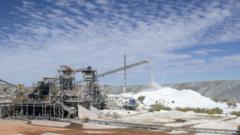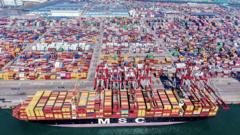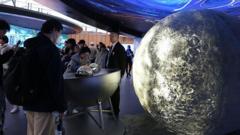In a strategic move spurred by China's export restrictions on rare earth elements, Australian Prime Minister Anthony Albanese has announced a commitment of A$1.2 billion ($580 million) towards creating a national reserve of critical minerals. This plan is part of a larger effort to consolidate Australia’s position in the global supply chain for rare earths, which are pivotal in advanced technologies like electric vehicles and military applications. The restrictions from China are seen as a direct response to U.S. tariffs and a signal of the growing trade tensions between these superpowers. Although Australia is a major player in raw material extraction, experts caution that its refining capabilities still heavily rely on China, posing a challenge in overcoming the Asian giant's market hold.
China's Rare Earths Export Halt: Will Australia Fill the Void?

China's Rare Earths Export Halt: Will Australia Fill the Void?
As China restricts rare earth exports, Australia plans to invest in critical mineral reserves.
Albanese's forthcoming election campaign has brought attention to the need for Australia to secure its mineral resources amid rising trade warfare. Rare earth elements are crucial for the production of electric vehicles, drones, and other essential technologies but are primarily refined in China, giving Beijing substantial leverage.
The necessity for alternative sources is becoming increasingly vital, especially for nations like the U.S. that depend on rare earth imports. Australia boasts reserves of both rare earths and other critical minerals like lithium and cobalt, but the country still faces challenges in establishing a domestic refining capacity. This reality emphasizes the urgency of Albanese's proposal to prioritize minerals that will enhance both national and allied security.
While Albanese's strategy envisions stockpiling and refining rare earths domestically, experts predict it won't eliminate Australia's reliance on China, especially in the short term. With approximately 90% of rare earths processed in China, the western push for independence appears daunting. Australia's recent ventures into refining, such as the new Arafura facility, signal progress, but analysts remain skeptical about the nation’s ability to replace China’s refining monopoly in the near future.
The export controls from China have already prompted reactions from significant players like Tesla CEO Elon Musk, indicating the immediate impact on tech developments. As Australia seeks to position itself as an alternative supplier, the complex interplay of international relations and resource management will shape future dynamics in the rare earth market.
The necessity for alternative sources is becoming increasingly vital, especially for nations like the U.S. that depend on rare earth imports. Australia boasts reserves of both rare earths and other critical minerals like lithium and cobalt, but the country still faces challenges in establishing a domestic refining capacity. This reality emphasizes the urgency of Albanese's proposal to prioritize minerals that will enhance both national and allied security.
While Albanese's strategy envisions stockpiling and refining rare earths domestically, experts predict it won't eliminate Australia's reliance on China, especially in the short term. With approximately 90% of rare earths processed in China, the western push for independence appears daunting. Australia's recent ventures into refining, such as the new Arafura facility, signal progress, but analysts remain skeptical about the nation’s ability to replace China’s refining monopoly in the near future.
The export controls from China have already prompted reactions from significant players like Tesla CEO Elon Musk, indicating the immediate impact on tech developments. As Australia seeks to position itself as an alternative supplier, the complex interplay of international relations and resource management will shape future dynamics in the rare earth market.





















